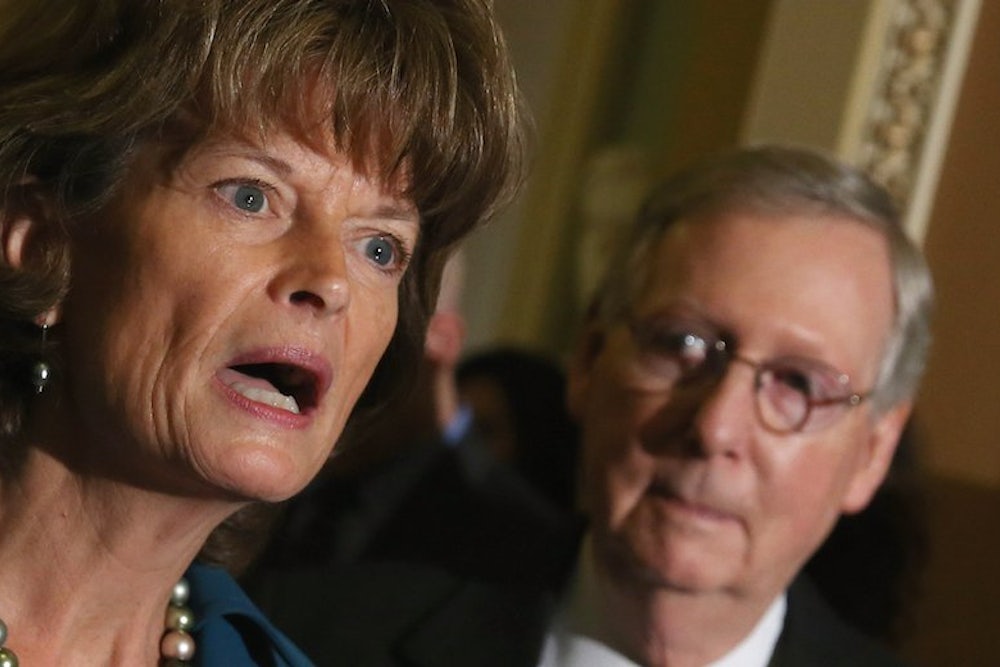Senate Energy and Natural Resources chairwoman Lisa Murkowski hopes that for the first time since 2007, Congress will pass a broad energy package this year. And maybe, the Alaska Republican suggested to reporters on Thursday, the GOP package will even take modest action on climate change.
“So much of what we do addresses the issues that are associated with climate change," she said, when asked whether climate considerations will be a part of the debate. "Whether it’s working to reduce emissions, whether it’s working to nail down our renewables, whether it’s ensuring great efficiency in accessing all of our energy sources. And I don’t know how we got ourselves into this box, where unless it’s a discussion about carbon tax or cap-and-trade then that’s the only thing that addresses climate.”
Ever-rising greenhouse gas emissions are clearly pretty low on Murkowski’s list of priorities for energy legislation, even though she's one of few GOP senators who generally agree that climate change is man-made. She proposed 17 bills that could be part of the package, addressing areas like the electric grid, alternative energy like hydropower, and energy efficiency. One proposal aims to restrict the Department of Energy's loan guarantee program for renewables. But many of the more controversial, pro-oil policies Murkowski champions, like drilling in the Arctic National Wildlife Refuge and lifting the U.S. ban on oil exports, are noticeably missing.
The Senate Energy and Natural Resources committee will begin hearings later in May, and with the help of ranking Democrat Maria Cantwell, Murkowski expects to move forward with the legislation this summer. Murkowski says she wants bipartisan legislation that stands the best shot at passing. "We've done a lot of messaging around these parts of late, and I want to actually make some changes to our energy policy," she said.
Republican senators will probably weigh the legislation down with amendments that curtail environmental Protection Agency regulations and expand oil and coal operations. And chances are, the final product will contribute to carbon pollution rather than reduce it. But without Murkowski, the GOP's energy package would probably look a whole lot worse.
